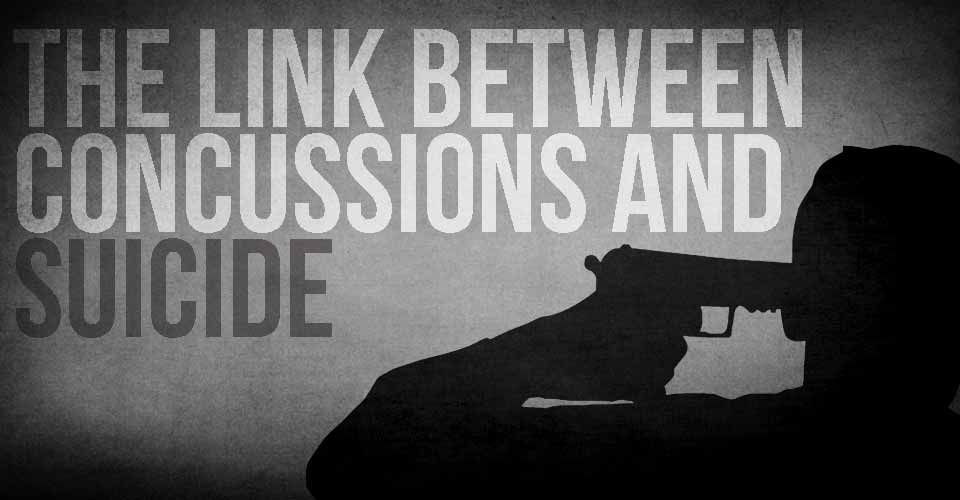
With the recent death of BMX legend Dave Mirra at his own hands, the link between concussions and suicide is back in the forefront. Chronic Traumatic Encephalopathy, or CTE, has been a discussion topic for years in the NFL and is the topic of the controversial new film “Concussion” starring Will Smith. CTE is widespread among athletes, boxers, and MMA fighters, but no one really ever talks about the connection between depression and CTE.
CTE is basically a breakdown of brain tissue from repetitive head injuries. In the past, CTE was referred to as “punch drunk”, in reference to boxers who’s brains were so severely damaged, they degenerated into a state very similar to Parkinson’s disease. Muhamed Ali in his later years was a prime example of the original diagnosis of CTE.
The repeated trauma to the brain causes the formation of an unusual protein in the brain called tau. As CTE progresses, it slowly deteriorates the brain, specifically the frontal lobe. The tricky thing about CTE is that it pops up years or even decades after the actual brain trauma that caused it. It’s a progressive disorder that causes “memory loss, confusion, impaired judgment, impulse control problems, aggression, depression, suicidality, parkinsonism, and eventually progressive dementia,” according to the Boston University CTE Center.
Read: 4 Easy Ways To Free Your Life Of Negative Energy
As someone who is personally dealing with a form of CTE, I can tell you the experience is unlike anything I’ve ever been through. I played football for 14 years and suffered many concussions starting at a fairly young age. As an adult, back in September, I started losing periods of time, experiencing headaches on a regular basis, and had bouts of general confusion. For instance, I’d wake up in my own bed and have no idea where I was. I would panic and freak out every time I’d wake up.
The emotional strain of CTE is enough to invoke periods of depression and potentially suicide, aside from the actual physical damage it does to the brain. You also have to keep in mind that we are talking about athletes, people who don’t want to be told that they are sick or something is wrong with them.
Read: 3 Tips to Managing Anxiety that Just Make Sense
Initially, there was no diagnostic test for CTE. All the research had to be done post-mortem. Researchers at UCLA university have developed a test utilizing a PET scan to detect CTE early so that it can be treated more effectively. Dave Mirra is only the most recent athlete to raise the question of a link between CTE and suicide. NFL linebackers Adrian Robinso and Junior Seau both committed suicide, and both reportedly had CTE symptoms.
Mirra reportedly suffered from depression leading up to his suicide. As new methods for detecting CTE are developed and a better understand is developed about the condition’s link to depression, new treatment options are becoming available.


